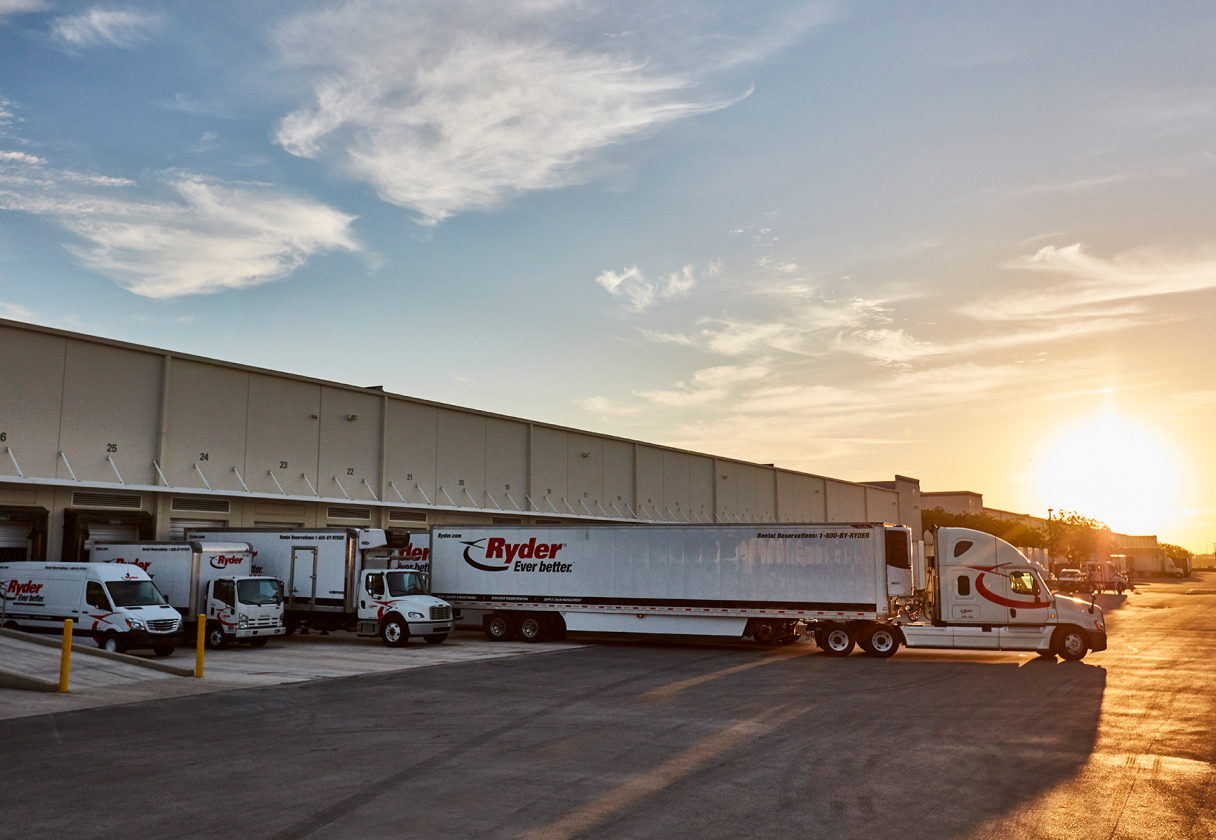We are proud to present Ryder’s 2019-2020 Corporate Sustainability Report, which outlines our sustainability strategy, goals, and significant accomplishments between January 1, 2019 and December 31, 2020. Please note that in some areas, 2020 data has not yet been released, and will be added at a later point in 2021.
This report has been prepared in accordance with the Global Reporting Initiative (GRI) Standards Core option, including the updated 2018 Safety Standards and 2020 Waste Standards. It is also aligned to the Sustainability Accounting Standards Board (SASB Index) Air Freight & Logistics Standard, and to the recommendations of the Task Force for Climate-Related Financial Disclosures (TCFD Index). See our content indices for more information.
Our most recent sustainability reporting, including our 2017-2018 Corporate Sustainability Report, can be found here. All information covered in this report relates to Ryder System, Inc. (Ryder), as defined in Part 1, Item 1 (Business Overview) of our 2020 10-K. For more information or questions, please contact RyderForInvestors@ryder.com.
When I reflect on Ryder’s 87 years of delivering innovative logistics and transportation solutions, I get excited about Ryder’s future. By ensuring long-term viability as a profitable and thriving enterprise, we are better positioned to make an impact where our business intersects with our communities and stakeholders. At Ryder, we strive to integrate corporate responsibility and sustainability into every aspect of our business, and understand that sustainability goes hand-in-hand with maintaining economic viability.
Learn More
Ryder regularly interacts with our customers, employees, local communities, policymakers, shareholders, suppliers, trade associations, and industry peers on advancing sustainability issues.
Learn More
Our 2019-2020 Corporate Sustainability Report is prepared in accordance with applicable standards and recommendations from the Global Reporting Initiative (GRI), the Task Force on Climate-Related Financial Disclosures (TCFD), and the Sustainability Accounting Standards Board (SASB) Air Freight & Logistics framework.
Learn More
